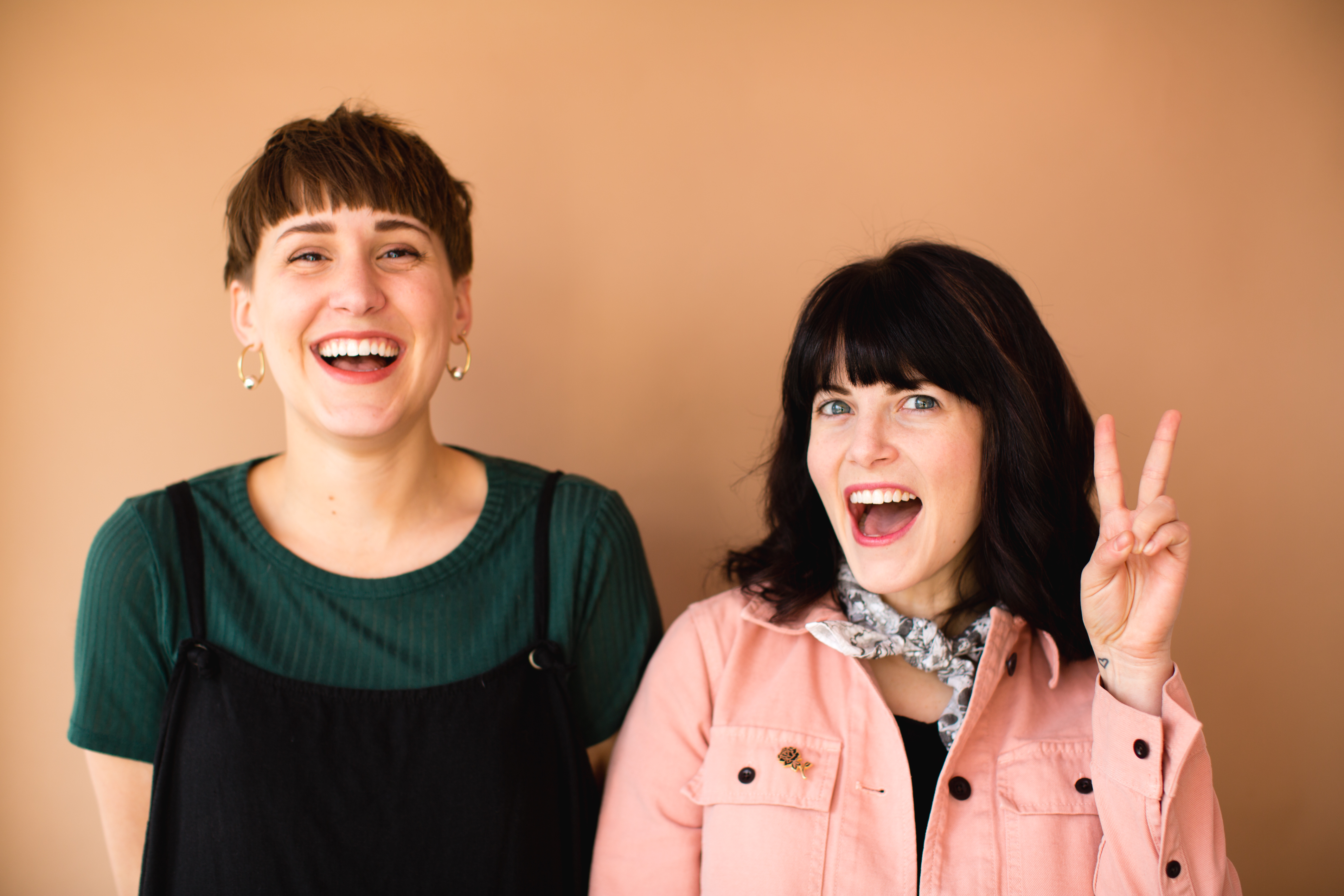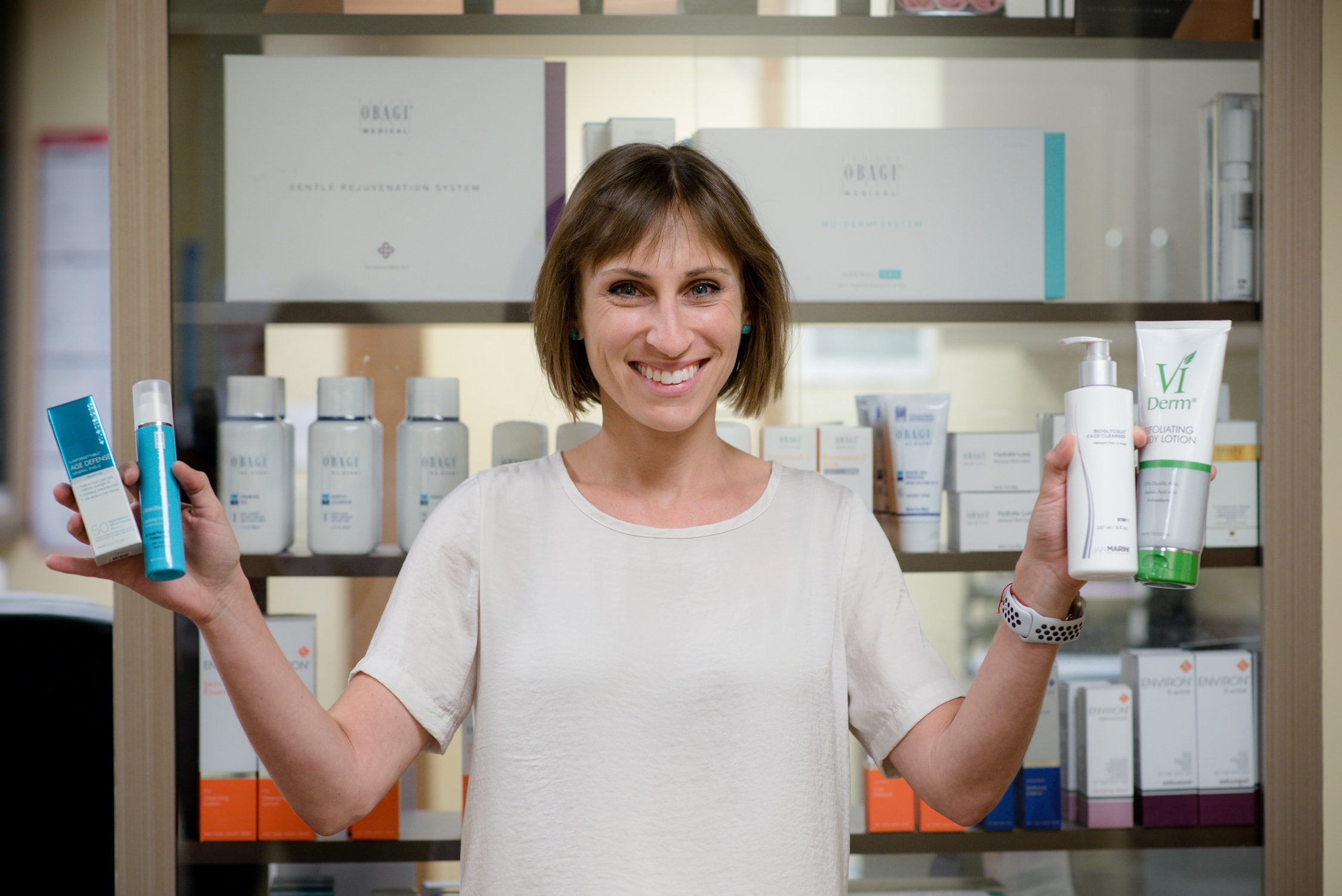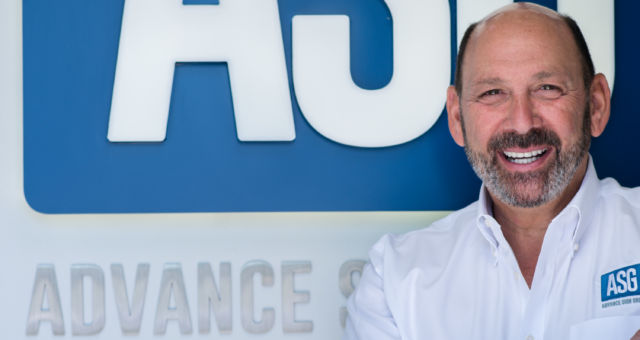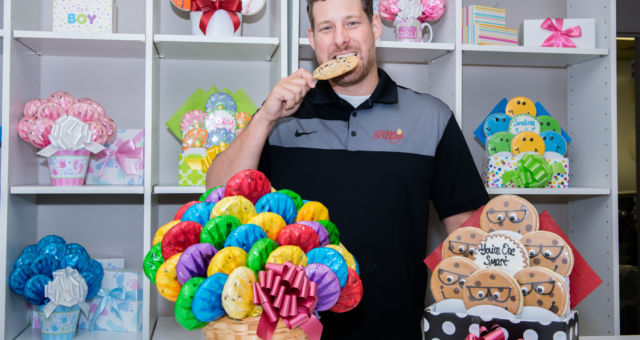As a serial entrepreneur, Mike Leibrand understands the ins and outs of starting and running a business. His first venture began in 1990, selling T-shirts door-to-door in college. Since then, he’s owned multiple businesses, his most recent being Summit Technologies. Read about how he’s kept his entrepreneurial fire burning for over 30 years and what he’s learned along the way.
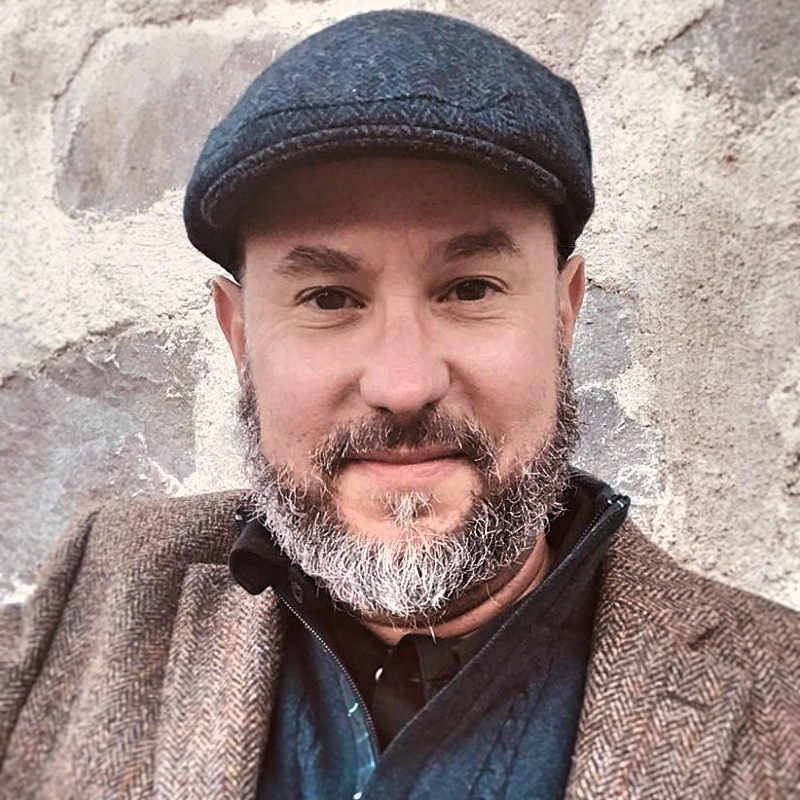
Give us a summary of your business in 200 words or less.
Summit Technologies is a Columbus, Ohio-based Salesforce Consulting Partner consisting of a talented and creative team of Salesforce-certified consultants, developers, analysts, and project managers. We specialize in building innovative solutions for our clients within the Salesforce family of products.
We work with our clients to craft technology solutions tailored to their specific needs, rather than a one-size-fits-all approach. We work with many industries, such as nonprofit, small businesses, higher education, transportation and logistics, insurance, healthcare, retail, telecommunications, and municipal and state government.
Note: Our list of the Top 5 3PL Companies in Columbus can help you find the best people to handle all your shipping and logistics needs.
How did the idea for your business come about?
After exiting my old companies in the apparel industry in January of 2016, I knew I wanted to focus my career in technology, especially in helping small businesses solve their challenges. My friend, now business partner, Moez Chaabouni encouraged me to look into Salesforce as the platform to facilitate these goals.
Despite initial skepticism, once I began to understand the platform, I understood that if applied properly, it had the potential to rapidly transform organizations with scalable solutions integrating all aspects of their organization.
How did you acquire the skills needed to make this transition from apparel to tech?
I had spent nearly 10 years at my apparel companies building the software that ran our businesses. In the last six years, I transitioned from being a developer to managing a team of developers, so when I left, I felt my skills had atrophied.
Within a month of selling the companies, I enrolled in a full-stack web development class. Then, when I pivoted to Salesforce, there were a wealth of free online learning tools I took advantage of.
What was the turning point for your business? Was there a moment you knew you had something special?
Quite literally, when I paid off the last bit of debt I took on to get started and had money left over to start paying myself a respectable salary.
How did you manage the stress of being in debt?
For me, stress is motivation – I tend to work whatever hours are needed to work my way out of it. It’s important to be pragmatic and focus on what is working versus what you might have wanted to work that isn’t.
It’s also important to have a limit and stick to it. Being stubborn and persistent isn’t a virtue if it leads you to bankruptcy or many years of paying back debt for something that didn’t work.
What does it mean to you to be an entrepreneur and business owner?
I’ve been an entrepreneur since I started selling t-shirts door to door in college in 1990. In 1995, I quit my full-time job at CompuServe to pursue my apparel business full-time.
As a business owner, I feel a great responsibility to my family, my business partner, my teammates, and our clients. All have placed their trust in me and my company, and I am deeply invested in their success.
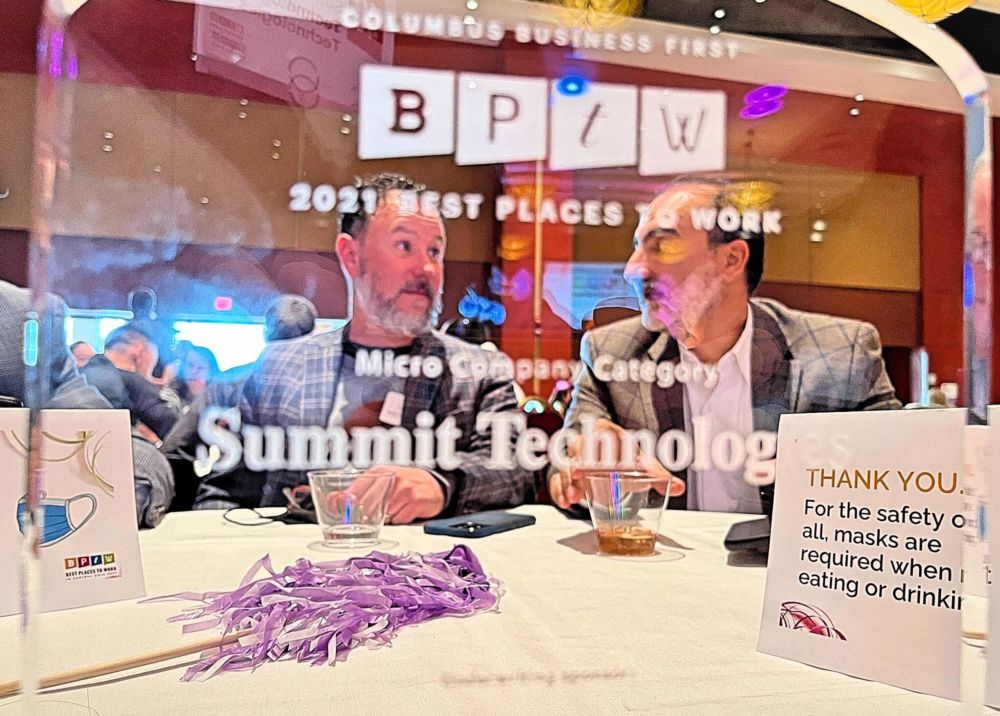
What does the city of Columbus mean to your business?
Columbus is a great source of talent and has a thriving economy, both of which have been crucial to the success of all the businesses I have been involved with. The general friendliness of the people in Columbus and relatively low cost of living make it a great home base for Summit Technologies.
Are you from Columbus?
I grew up in Granville, but always felt drawn to cities. Proximity to my family and early business success kept me from moving to a larger city earlier in my career, but I suspect that even if I had left I would have come back.
What’s the number one piece of advice you’d give to anyone wanting to start a business?
Understand that it will take much longer than you think to become established and profitable, so make sure you can pay your bills until it does. Don’t quit your day job if you can avoid it.
Did you keep your day job while building Summit Technologies?
No, as a serial entrepreneur, I was fortunate to have a nice runway after my exit from my other companies. Early on, when starting Ares Sportswear, I worked a day job at CompuServe for several years in the early to mid-nineties.
What do you wish you knew about entrepreneurship before starting your business?
It’s a bad idea to partner with or hire friends and family. You may eventually outgrow them, and parting ways can ruin relationships.
Do you think this is a hard and fast rule?
Everyone’s situation is different, but I would advise people to approach with extreme caution and think through the consequences of things not going as planned. If the business is successful, things change, including the expectations of friends and family who may work for you.
What’s the most challenging part of your business?
There is always some large or small fire burning – it might be worrying that a key person might leave the organization (or trying to replace one if they do), addressing a customer service issue, or worrying about how we are going to staff all the projects we are selling.
Every business owner has a flaw. What’s yours?
I am impatient and have high expectations of everyone, including myself. I tend to see people’s potential and push them towards it, which can make people uncomfortable.
Why do you think most business owners fail? What has made you different?
Cash flow kills most businesses, and many business owners overspend early (before they have proven their business model) and run out of money. I advise people to plan for it taking at least twice as long as they might expect to achieve profitability, and to plan accordingly.
Another thing I see is the inability or unwillingness to pivot the business model based on what the market tells you. We thought we would be doing a lot of Salesforce work for the State of Ohio when things started, but instead, we found we were getting traction setting up small businesses with Salesforce. We shifted our focus to that and have had great success there, and with nonprofits and even higher education institutions, which we had never really planned for.
How did you “plan accordingly”?
I am quite frugal, especially at the beginning of a venture when there is a lot of risk and unknowns. Planning accordingly for me was ensuring I wasn’t risking more than I could afford to lose and that I had my mortgage, bills, and retirement secured.
I tried not to throw more money than was absolutely necessary to prove the concept and get it off the ground. I was also prepared to walk away if it didn’t work out after a couple of years and find something else to do.
What was your biggest mistake and what did it cost you?
Not exiting my previous companies sooner to start Summit Technologies. It was no longer fulfilling, and my goals were not aligned with my business partners’, which led to conflict. The result was a great deal of unnecessary stress, and it kept me from doing what I truly love, which is working at Summit Technologies.
What tool has helped you the most for your business?
That’s easy… Salesforce! Of course we use it to run our business and have customized it beyond just sales tracking to handle the needs of a professional services company. This includes resource management, time tracking, invoicing, and much more.
When did you know it was time to expand your business, make your first hire, etc.?
As a professional services firm, on day one, we knew we needed a team to sell and deliver our services.
Note: If you need a team of your own, read our list of the Top 10 Staffing Agencies in Columbus to get started.
How were you able to pay your employees from “day one”?
We self-financed from savings and secured a loan that we personally guaranteed. In my previous businesses, we only hired when cash flow permitted it, and that is the approach I recommend. Although it is a lot slower getting going, it reduces the risk and consequences of failure.
What is something you did that was a game-changer for your business?
I’ve surrounded myself with a team who inspire and challenge me while doing incredible work for our clients.
What was an idea that you spent a lot of time on or thought would make a big difference in your business that didn’t pan out?
I was hoping we would be a little further along in developing our software as a service (SaaS) products than we are, but that will eventually change.
What is something that your business spends a lot of money on that’s worth it?
Our salary and benefits. We need to attract and retain the top people in the industry, and that means we have to take great care of them.
What is something you’re working on now that you’re very excited about?
I just finished building a complex solution for one of our local nonprofit clients, Ruling Our Experiences (ROX), who are turning girls into leaders at schools all over the US.
I donated my time to this project and had fun getting in the weeds with the technology. As a company, we donate 1% of our time every year to nonprofits. I am especially proud and excited about the work we do for the nonprofit community in Columbus and around the country.
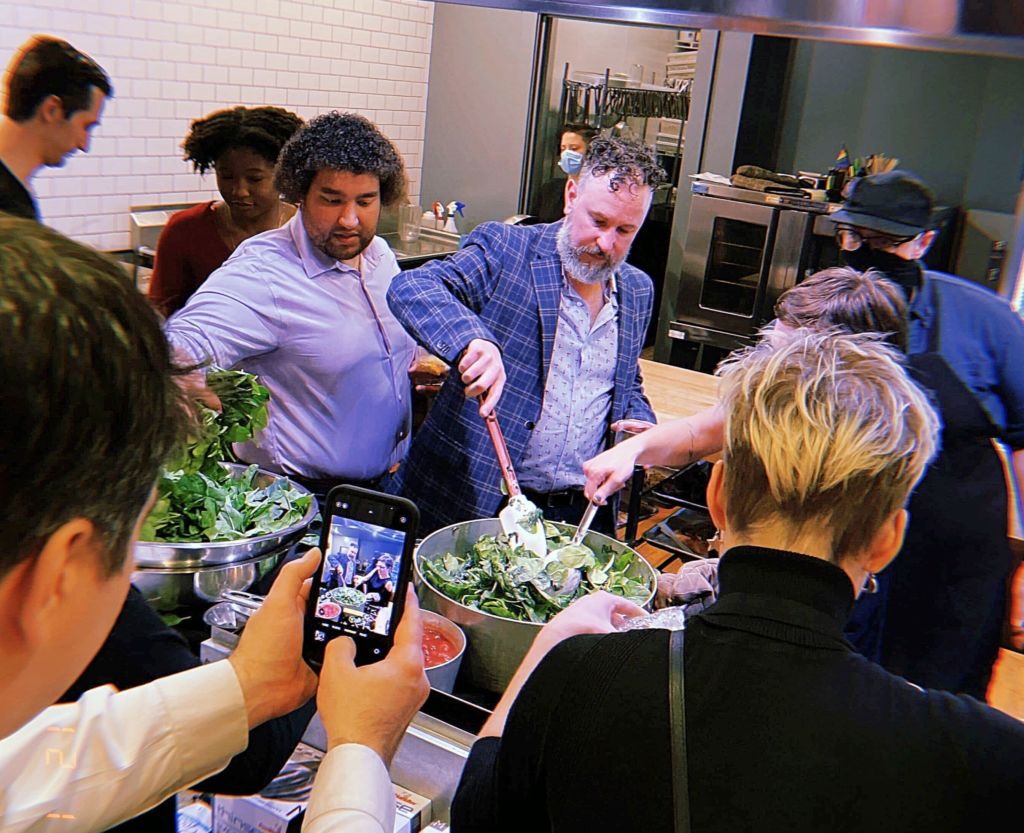
What form of marketing is the most valuable for you?
Our website with pages for the various services we offer, optimized for search engines, is by far our best marketing tool.
Who is your best Columbus resource?
Too many to name them all, but recently Rich Grunenwald from Advisory & Consulting Services has been an enormous help to our recruiting efforts. Recruiting is nearly as important as sales in our industry, and Rich has a very well-thought-out and structured approach that’s been a big help.
Who do you vent to when you have a business problem?
My business partner and long-time friend, Moez Chaabouni.
Where do you see your business in the next 10 years?
In the hands of the next generation of leadership, continuing to grow rapidly, with me on the board.
What was the single worst decision you made regarding your business, and how’d you recover?
I avoided being hands-on delivering projects in the early days, which made me less able to interview, hire and manage effective team members.
Successfully working in delivery made me not only much better at understanding what it takes to do the job, but also boosted my confidence, which helps with sales.
What kept you from being “hands-on” in the beginning?
A belief at the time that I should be more focused on recruiting, management, and other strategic functions. That, and probably a little fear, since I had never actually done that professionally before.
When you’re stressed or overwhelmed, what do you do to overcome this feeling?
Take a breath and remember that nothing is permanent and things always trend toward the better (if I put my head down and do the work).
What’s one component of entrepreneurship that’s much different than what most people think?
If you are successful, you spend a lot less time doing that thing that you love that had you start the business and a lot more time doing things like interviewing, bookkeeping, meeting with marketers, sales, etc.
How do you draw inspiration from these more tedious aspects of business ownership?
Having gone through it before at my other companies, I was prepared. The key is understanding the value of having some capacity for strategic thinking, which is just not possible when mired in day-to-day operations. Gaining this capacity means finding enjoyment in hiring and mentoring the right people for day-to-day work.
The hardest part is staying motivated when you don’t have deadlines and client commitments, which I do by planning this work out, so I am making progress of some sort every day.
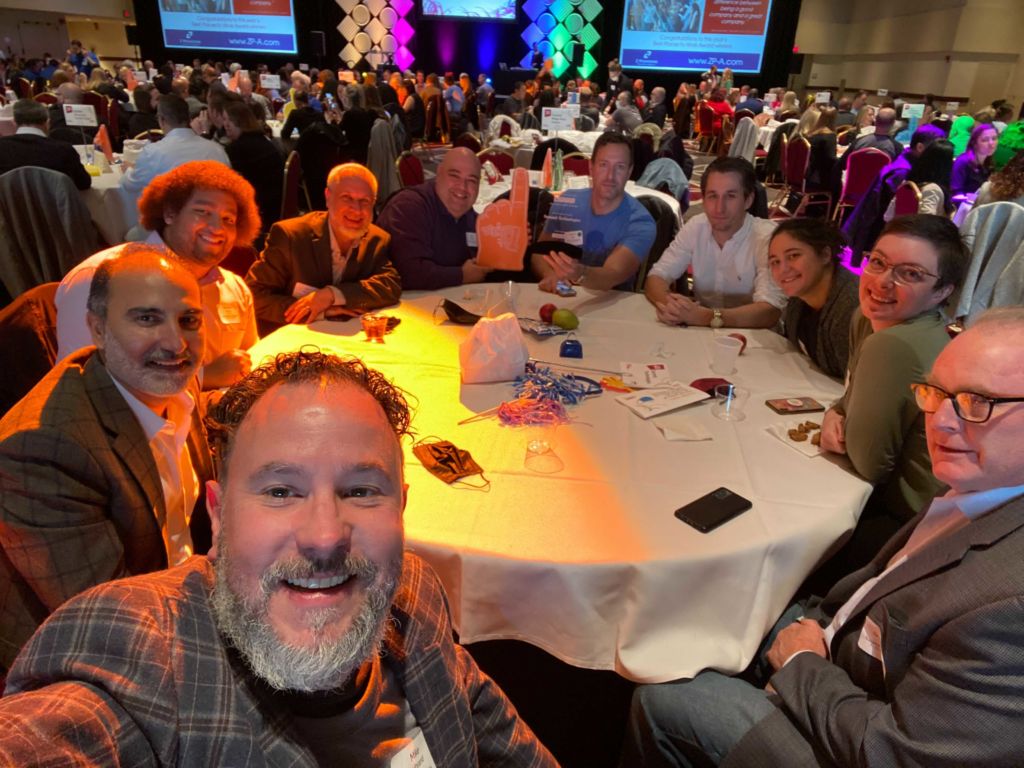
What’s your end goal with the business?
The goal is to sell the business to the employees and become a board member to continue using my experience to better the organization.
What other entrepreneur do you look up to most?
Marc Benioff, founder of Salesforce
What do you appreciate most about his approach to entrepreneurship?
His commitment out of the gate to giving back, as well as his dedication to a diverse workforce for starters.
If you had to tell a visitor one thing to do/see/eat in Columbus, what would it be?
Go to an OSU football game!

